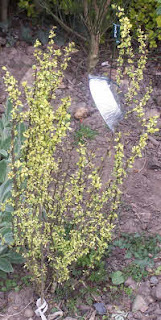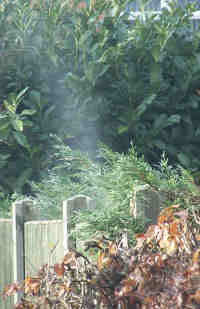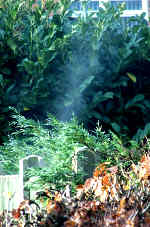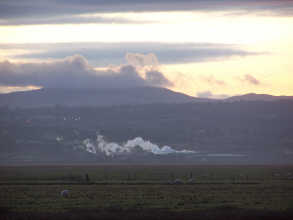What's Growing at The Home of The Organic Gardener in 2012
Here's a quick list to outline my plans for this year.
Potatoes - 4 varieties - 17 Elizabeth, 10 Sarpo Mira, 10 Salad Blue, 5 Swift.
Onions - 60+ Hitech F1, 60+ Hired plus
multi-sow 16 modules minimum, each with 5 seeds of Bedforshire Champion.
6 - 10 Shallots left over from last year to plant,
At least 20 Garlic left over from last year to plant.
Spring Onions White Lisbon for use until Christmas, and from Summer I'll be sowing Winter Hardy White Lisbon to pick later.
Leeks Musselburgh a late variety, I'll find room for 2 rows squeezed in somewhere.
Carrots, many rows I need a lot - including Chantanay Red Core, Autumn King,
Beet Root more more - pick young and even more larger roots for storage,
Lettuce, Radicchio, crisp texture and coloured leaves,
Pak Choi 'ruby' is a dark red leaved variety for good health,
Courgettes,
Runner Beans,
Brussels Sprouts - I only need 3 or 4 plants,
Cauliflower 'Iglo' and 'Romansco',
Celery will grow with the Brussels Sprouts or Cauliflower,
French beans row after row, continue picking for a big crop,
Outdoor Tomatoes in the garden,
In the Greenhouse,
Sweet Peppers, I'm leaving tomatoes out of house beds this year,
Melons - 'Sweetheart' - hard to get the seed this year but I hope to grow 4 or five plants with lots of fruit,
Tomatoes in a hanging basket,
Cucumber - must give them a go again,
Garlic in the greenhouse, and
I'll try several crops normally grown outside such as Radicchio, Carrots, Alpine Strawberries and 2 other strawberry varieties.
And there's more...
Permanent fruit fixtures include:
4 varieties of Gooseberry,
2 Blackcurrant bushes,
1 Jostaberry,
1 Blackberry,
1 Tayberry,
A plum tree,
3 varieties of Raspberries: including a summer variety plus 'Autumn Bliss' and 'All Gold,
3+ varieties of Strawberries including 'Alice', 'Elsanta' 'Flemenco',
3 varieties of Apples in cordons.
There's always something to look forward to.
All that plus lots of tasty herbs to flavour my meals and keep me healthy. Young fresh shoots of Fennel are growing strong even now, but all that's another story.
 Well it has been raining in the north west of England. The earth is soaked and although there's still a chill in the air it is warming up under foot.
Well it has been raining in the north west of England. The earth is soaked and although there's still a chill in the air it is warming up under foot. Indeed the moist air is a stroke of luck for my garden. It will help ensure good pollination of fruit trees. They have cropped for me year after year and now I'm hopeful that this year will be a big fruiting year yet again.
Indeed the moist air is a stroke of luck for my garden. It will help ensure good pollination of fruit trees. They have cropped for me year after year and now I'm hopeful that this year will be a big fruiting year yet again.





